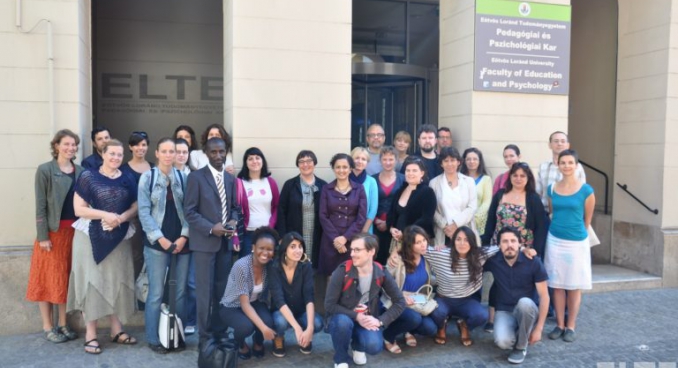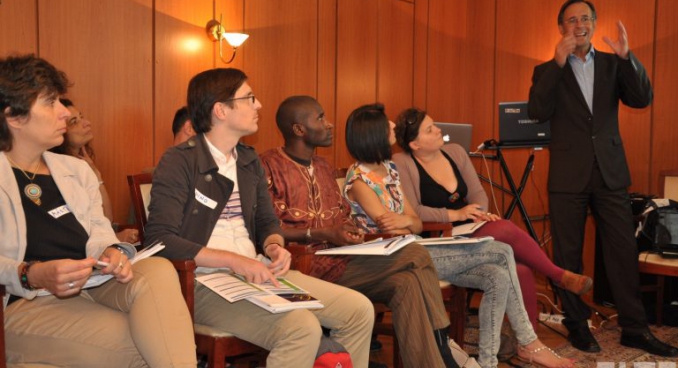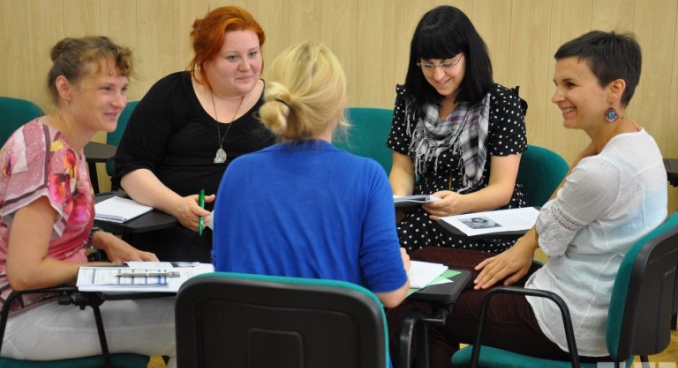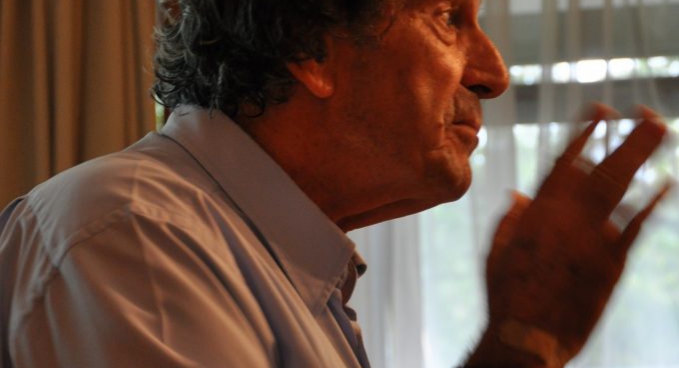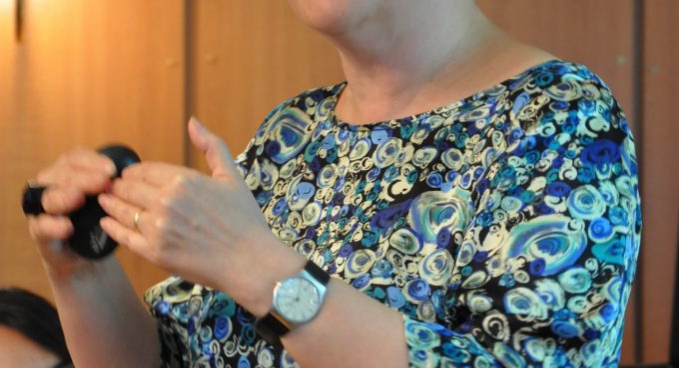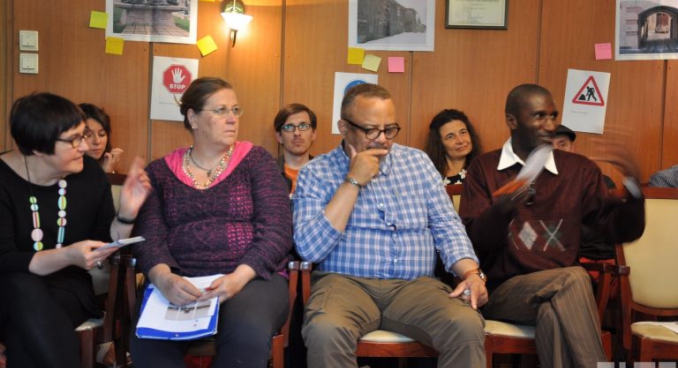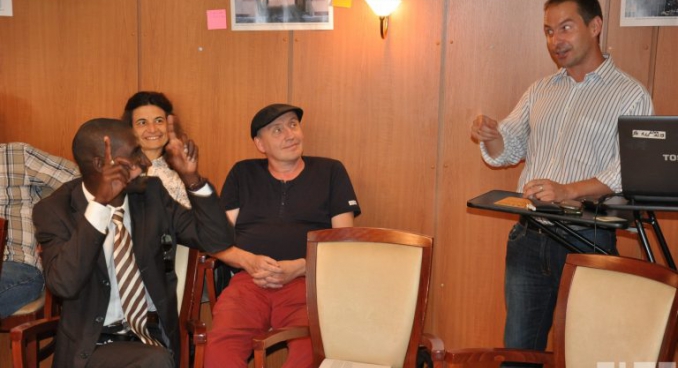European Summer School on “Prejudice, Genocide, Remembrance” 2014
Our Summer School on “Prejudice, Genocide, Remembrance” (25-29 August 2014) has come to an end. The summer school was hosted by the ELTE Faculty of Education and Psychology, and it was supported by the International Holocaust Remembrance Alliance and the Civil Fund-2014 of the Holocaust Memorial Year in Hungary.
We had over 30 participants from Armenia, Belarus, Bosnia and Hercegovina, Bulgaria, Georgia, Germany, Greece, Hungary, Lithuania, Moldova, Poland, Serbia, Turkey, Ukraine, and the United Kingdom.
The approaches varied from legal and historical, to social psychological and educational, which enabled participants from different backgrounds to gain new insights and discuss and share their experiences. The program included lectures and workshops, as well as guided walks in the Jewish neighbourhood led by the Zachor Foundation, including the visit to the Great Synagogue, and a walk in the 8th district guided by volunteers of the UCCU Foundation, where participants could learn more about Roma institutions and visit the Gallery 8, a Roma art gallery currently exhibiting paintings by the Roma artist and Holocaust survivor Ceija Stojka. Some also walked to the Shoe Memorial on the Danube and watched testimonies of Holocaust survivors there.
During and after sessions students and lecturers engaged in very interesting and constructive discussions which sometimes turned into heated debates.
After the successful completion of this pilot training, we are planning to organise another similar summer school next year.
For a more detailed account on the summer school, please see below.
On Monday, Melissa Sonnino (CEJI – A Jewish Contribution to an Inclusive Europe) made participants reflect on the issues of identity and prejudices, introducing the „iceberg model of identity”, as well as the „Pyramid of Hate” and „Pyramid of Alliance” models, while Andreas Zick (Institute for Interdisciplinary Research on Conflict and Violence at Bielefeld University) introduced the concept of “Group-focused enmity” and presented some results of the study “Group-focused Enmity across Europe” that shows how anti-Semitism, anti-immigrant prejudices and other expressions of hostility are inter-linked. From this perspective, prejudices and other patterns of outgroup-derogation and devaluation rest on a general ideology of unequal worth between groups.
On Tuesday, Kinga Déry (International Human Rights Lawyer) presented the normative aspect of genocide, followed by László Csősz (Holocaust Memorial Center in Budapest) on the Holocaust, with a specific emphasis on Hungary. In the afternoon, Karen Polak (International Holocaust Remembrance Alliance) held a workshop on the fate of the Roma and Sinti during the Holocaust, inviting the students to reflect on photographies of Roma during the pre-war time and the Nazi area, and on biographies of Roma Holocaust survivors. Afterwards, Stanislav Daniel (Roma rights activist and trainer) exposed different cases of anti-Roma racism today, and Mónika Kovács (ELTE Faculty of Education and Psychology) addressed the mechanisms of scapegoating, along with other concepts that explain the social psychology of political violence, such as idealism, threatened egotism and high but unstable self-esteem, the role of humiliation, sadism, the frustration-aggression hypothesis, as well as the differentiation between various types of prejudices. This long day was concluded by the presentation of the work of two Hungarian non-governmental organisations: NEKI (The Legal Defence Bureau for National and Ethnic Minorities) and TEV (Action and Protection Foundation), respectively addressing discrimination against Roma and anti-Semitism through presenting specific cases.
On Wednesday we spent the whole morning discussing intergroup reconciliation with Arie Nadler (Tel Aviv University) who described various processes and aims of reconciliation (trust-building versus identity-repairing, integration versus separation), explained the different psychological needs of victims and perpetrators and the apology-forgiveness cycle, and introduced us in a very thought-provoking session to the concept of resentment and its role in opening the door to genuine reconciliation. Then, Nenad Dimitrijevic (Central European University) addressed transitional justice and the right to truth, focusing on the requirements for a transition to a regime in which freedom, equality, dignity, and security will be effectively guaranteed for all, and especially for those who until yesterday were subject to abuse; the victims’ rights and entitlements; the governments’ duties; the relation between justice and truth; and what the right to truth entails and how it is addressed by international law. Drawing upon these two sessions, Anna-Mária Bíró (Tom Lantos Institute) addressed minority rights and whether they could be a means for advancing reconcilation. We discussed the effectiveness of human rights norms and their problem-solving capacity; who are minorities; the history and justification of international minority rights norms; and the strengths and weaknesses of the current minority protection regime.
Thursday was dedicated to remembrance and memorials. What do memorials represent or don’t? who created them, and when? what is their purpose? do they have deeper or hidden meanings as well? – were questions asked by Alex Maws (Holocaust Educational Trust) during his workshop, in which we looked at different memorials and Holocaust remembrance sites throughout Europe. Matthias Heyl (Ravensbrück Memorial Site) then made us reflect on the alleged “German model” of remembrance and reconciliation in a very eye-opening class that addressed the history, evolution, and shortcomings of the way Holocaust education, remembrance, and reconciliation have been performed in Germany during and after the Cold War.
On Friday Sejal Parmar (Central European University and Article 19) addressed the sensitive topic of freedom of expression and the role and responsabilities of media in promoting intercultural understanding. Students engaged in small group work to discuss to what extent the media engages in or promotes harmful speech in their reporting on ethnicity and religion, and the obstacles to the media playing a positive role in the promotion of intercultural understanding. They also had to draw up some policy recommendations for overcoming such obstacles for relevant actors. Afterwards, Matthias Heyl confronted us with the paradox of human rights education and challenged our own attitude towards prejudices: no one can pretend to be unbiased and free of prejudices, hence rather than having human rights education as such, it is the whole education system that should be rethought and that should fully include the human rights approach. Last but not least, Péter Krekó (Political Capital) showed us alarming statistics on the rise of the far-right throughout Europe and analysed its correspondance with various factors in order to find appropriate strategies for countering this phenomenon.
